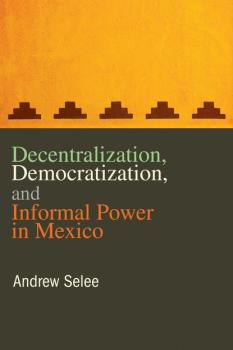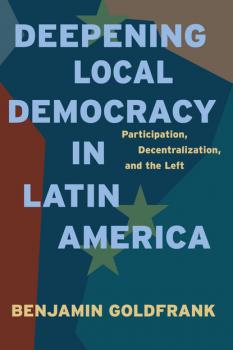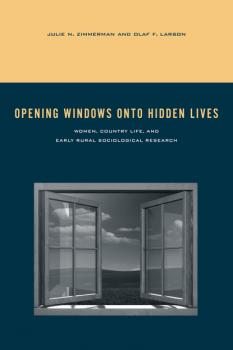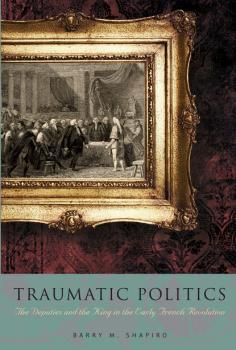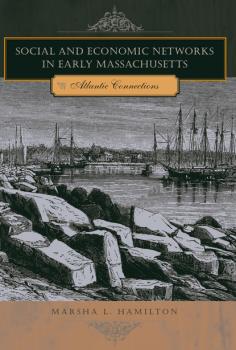Историческая литература
Различные книги в жанре Историческая литератураDecentralization, Democratization, and Informal Power in Mexico
In the last two decades of the twentieth century, many countries in Latin America freed themselves from the burden of their authoritarian pasts and developed democratic political systems. At the same time, they began a process of shifting many governmental responsibilities from the national to the state and local levels. Much has been written about how decentralization has fostered democratization, but informal power relationships inherited from the past have complicated the ways in which citizens voice their concerns and have undermined the accountability of elected officials. In this book, Andrew Selee seeks to illuminate the complex linkages between informal and formal power by comparing how they worked in three Mexican cities. The process of decentralization is shown to have been intermediated by existing spheres of political influence, which in turn helped determine how much the institution of multiparty democracy in the country could succeed in bringing democracy “closer to home.”
Deepening Local Democracy in Latin America
The resurgence of the Left in Latin America over the past decade has been so notable that it has been called “the Pink Tide.” In recent years, regimes with leftist leaders have risen to power in Argentina, Bolivia, Brazil, Chile, Ecuador, El Salvador, Nicaragua, Uruguay, and Venezuela. What does this trend portend for the deepening of democracy in the region? Benjamin Goldfrank has been studying the development of participatory democracy in Latin America for many years, and this book represents the culmination of his empirical investigations in Brazil, Uruguay, and Venezuela. In order to understand why participatory democracy has succeeded better in some countries than in others, he examines the efforts in urban areas that have been undertaken in the cities of Porto Alegre, Montevideo, and Caracas. His findings suggest that success is related, most crucially, to how nationally centralized political authority is and how strongly institutionalized the opposition parties are in the local arenas.
Rural Protest and the Making of Democracy in Mexico, 1968–2000
When the PRI fell from power in the elections of 2000, scholars looked for an explanation. Some focused on international pressures, while others pointed to recent electoral reforms. In contrast, Dolores Trevizo argues that a more complete explanation takes much earlier democratizing changes in civil society into account. Her book explores how largely rural protest movements laid the groundwork for liberalization of the electoral arena and the consolidation of support for two opposition parties, the PAN on the right and the PRD on the left, that eventually mounted a serious challenge to the PRI. She shows how youth radicalized by the 1968 showdown between the state and students in Mexico City joined forces with peasant militants in nonviolent rural protest to help bring about needed reform in the political system. In response to this political effervescence in the countryside, agribusinessmen organized in peak associations that functioned like a radical social movement. Their countermovement formulated the ideology of neoliberalism, and they were ultimately successful in mobilizing support for the PAN. Together, social movements and the opposition parties nurtured by them contributed to Mexico’s transformation from a one-party state into a real electoral democracy nearly a hundred years after the Revolution.
Feudal America
Do Americans live in a liberal capitalist society, where evenhanded competition rules the day, or a society in which big money, private security, and personal relations determine key social outcomes? Vladimir Shlapentokh and Joshua Woods argue that the answer to these questions cannot be found among the conventional models used to describe the nation. Offering a new analytical tool, the authors present a provocative explanation of the nature of contemporary society by comparing its essential characteristics to those of medieval European societies. Their feudal model emphasizes five elements: the weakness of the state and its inability to protect its territory, guarantee the security of its citizens, and enforce laws; conflicts and collusions between and within organizations that involve corruption and other forms of illegal or semilegal actions; the dominance of personal relations in political and economic life; the prevalence of an elitist ideology; and the use of private agents and organizations for the provision of safety and security. Feudal America urges readers to suspend their forward-thinking and futurist orientations, question linear notions of social and historical progression, and look for explanations of contemporary social problems in medieval European history.
Opening Windows onto Hidden Lives
Building on their analysis in Sociology in Government (Penn State, 2003), Julie Zimmerman and Olaf Larson again join forces across the generations to explore the unexpected inclusion of rural and farm women in the research conducted by the USDA’s Division of Farm Population and Rural Life. Existing from 1919 to 1953, the Division was the first, and for a time the only, unit of the federal government devoted to sociological research. The authors explore how these early rural sociologists found the conceptual space to include women in their analyses of farm living, rural community social organization, and the agricultural labor force.
Weaving Narrative
Enide’s tattered dress and Erec’s fabulous coronation robe; Yvain’s nudity in the forest, which prevents maidens who know him well clothed from identifying him; Lanval’s fairy-lady parading about in the Arthurian court, scantily dressed, for all to observe: just why is clothing so important in twelfth-century French romance? This interdisciplinary book explores how writers of this era used clothing as a signifier with multiple meanings for many narrative purposes. Clothing figured prominently in twelfth-century France, where exotic fabrics and furs came to define a social elite. Monica Wright shows that representations of clothing are not mere embellishments to the text; they help form the textual weave of the romances in which they appear. This book is about how these descriptions are constructed, what they mean, and how clothing becomes an active part of romance composition—the ways in which writers use it to develop and elaborate character, to advance or stall the plot, and to structure the narrative generally.
Traumatic Politics
The opening events of the French Revolution have stood as some of the most familiar in modern European history. Traumatic Politics emerges as a fresh voice from the existing historiography of this widely studied course of events. In applying a psychological lens to the classic problem of why the French Revolution’s first representative assembly was unable to reach a workable accommodation with Louis XVI, Barry Shapiro contends that some of the key political decisions made by the Constituent Assembly were, in large measure, the product of traumatic reactions to the threats to the lives of its members in the summer of 1789. As a result, Assembly policy frequently reflected a preoccupation with what had happened in the past rather than active engagement with present political realities. In arguing that the manner in which the Assembly dealt with the king bears the imprint of the behavior that typically follows exposure to traumatic events, Shapiro focuses on oscillating periods of traumatic repetition and traumatic denial. Highlighting the historical impact of what could be viewed as a relatively “mild” trauma, he suggests that trauma theory has a much wider field of potential applicability than that previously established by historians, who have generally confined themselves to studying the impact of massively traumatic events such as war and genocide. Moreover, in emphasizing the extent to which monarchical loyalties remained intact on the eve of the Revolution, this book also challenges the widely accepted contention that prerevolutionary cultural and discursive innovations had “desacralized” the king well before 1789.
A Brief History of the Artist from God to Picasso
In A Brief History of the Artist from God to Picasso , Paul Barolsky explores the ways in which fiction shapes history and history informs fiction. It is a playful book about artistic obsession, about art history as both tragedy and farce, and about the heroic and the mock-heroic. The book demonstrates that the modern idea of the artist has deep roots in the image of the epic poet, from Homer to Ovid to Dante. Barolsky’s major claim is that the history of the artist is inseparable from historical fiction about the artist and that fiction is essential to the reality of the artist’s imagination.
Lessons from America
Every war has refugees; every revolution has exiles. Most of the refugees of the French Revolution mourned the demise of the monarchy. Lessons from America examines an unusual group who did not. Doina Pasca Harsanyi looks at the American experience of a group of French liberal aristocrats, early participants in the French Revolution, who took shelter in Philadelphia during the Reign of Terror. The book traces their path from enlightened salons to revolutionary activism to subsequent exile in America and, finally, back to government posts in France—illuminating the ways in which the French experiment in democracy was informed by the American experience.
Social and Economic Networks in Early Massachusetts
The seventeenth century saw an influx of immigrants to the heavily Puritan Massachusetts Bay Colony. This book redefines the role that non-Puritans and non-English immigrants played in the social and economic development of Massachusetts. Marsha Hamilton shows how non-Puritan English, Scots, and Irish immigrants, along with Channel Islanders, Huguenots, and others, changed the social and economic dynamic of the colony. A chronic labor shortage in early Massachusetts allowed many non-Puritans to establish themselves in the colony, providing a foundation upon which later immigrants built transatlantic economic networks. Scholars of the era have concluded that these “strangers” assimilated into the Puritan structure and had little influence on colonial development; however, through an in-depth examination of each group’s activity in local affairs, Marsha Hamilton asserts a much different conclusion. By mining court, town, and company records, letters, and public documents, Hamilton uncovers the impact that these immigrants had on the colony, not only by adding to the diversity and complexity of society but also by developing strong economic networks that helped bring the Bay Colony into the wider Atlantic world. These groups opened up important mercantile networks between their own homelands and allies, and by creating their own communities within larger Puritan networks, they helped create the provincial identity that led the colony into the eighteenth century.
